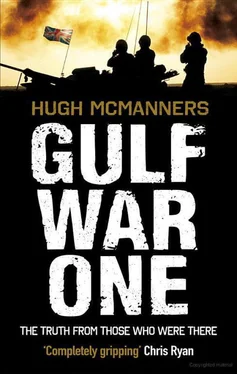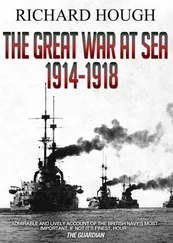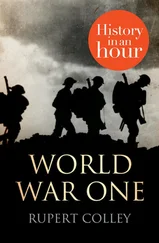The Rt Hon Tom King
UK Secretary of State for Defence
In July 1990, intelligence reported a developing row between Saddam Hussein and Kuwait. The Iran–Iraq war had caused terrific casualties, but was now in the background. Saddam accused Kuwaitis of slant drilling from their side of the border into oilfields on the Iraqi side of the border, stealing the oil. There was also ill-feeling over Kuwait lowering the price of its oil. Kuwait owned the Q8 chain of garages selling their own petrol in Europe, so could profit downstream from low oil prices. It wasn’t just Iraq complaining about this, but also the region’s other oil-producing countries.
Major General Alexander Harley
Assistant Chief of Defence Staff (Overseas), Ministry of Defence, Whitehall
In April 1990 I was posted back to Whitehall from Germany, where I’d been chief of operations in the old Northern Army Group Headquarters, to be ACDS (Overseas), the man who had to deal with any overseas crisis. My boss was the Deputy Chief of Defence Staff (Commitments), an air marshal – Ken Hayr.
Soon after I took over, Iraq was looking pretty untidy. Fortunately, I’d already done a job in the MoD as the Director Commitments (UK), when on my second day at work I’d been told to set up a crisis centre to manage the soon-to-occur Falklands War. I didn’t get home for the next four days, and managed the crisis centre for the rest of the Falklands War. So I already knew quite a bit about MoD crisis management.
There’d been a number of scares regarding Saddam and Kuwait, but nobody really believed anything would happen until it actually did – a bit like the Falklands, and not very clever. The Iraqis kept moving troops forward, then back again. It was too easy for them to move suddenly into Kuwait. The whole thing happened very quickly.
Dr Mary McLoughlin
I’d left Iraq at the beginning of July, for Turkey, with my partner on a month’s holiday. Just after we returned to Iraq, Saddam invaded Kuwait. I was due to fly home at the end of my contract. In fact I went down to the hospital office to collect my flight ticket, but the head of personnel said to me, ‘Didn’t you hear?’ And I remember saying, ‘Hear what?’ It was five months before I was finally actually able to collect that ticket!
Saddam had invaded Kuwait the previous night, all the border crossings and the airport were closed, so no one was flying anywhere. I was absolutely gobsmacked and totally dying to get home, plus I didn’t have a job as my contract had finished, so I had no purpose for being there.
Once the crisis started, people suddenly realised that we were in somebody else’s country, our fate determined by people with whom we had no relationship. Our people were saying ‘They can’t do this … we have rights’. But after four days of being glued to the radio and television, trying to find out what was going on, we realised that we had no rights at all.
Major David Potts
SO2 Army Logistics, Quartermaster General’s Department
In January 1990, after finishing Staff College, I’d been posted to the Quartermaster General’s department in the MoD. This was a massive source of disappointment and confusion to me, as I was an artillery officer, and didn’t know anything about logistics. But it turned out that sixty per cent of his staff were in a similar position – infantry, artillery or cavalry officers.
The Quartermaster General himself was a wonderful, avuncular three-star Green Jacket called Sir Edward Jones. His one-star was my boss, Brigadier Roland Notley, who I loved to bits, the bane of the life of the logisticians, as he didn’t take shit from any of them, operating in typical cavalry fashion, as if from the turret of his tank. The logisticians found this horrific, which in some ways it was, but they were too immersed in process. In the Cold War, it was all about managing stockpiles and strategic readiness, hardly a stimulating day’s work. So, with Roland Notley away a lot of the time, and me living in a flat in Fulham – apart from the work being bloody boring and so, like many of my friends, considering resignation – I was having a cracking time in London. Then in August, with Parliament in recess and everyone on holiday, Saddam Hussein invaded Kuwait.
Lieutenant General Walter Boomer
General Officer Commanding, 1 Marine Expeditionary Force, United States Marine Corps
When I heard of the invasion, I was driving to Camp Pendleton to take over the post of commanding the US Marine Corps Expeditionary Force. Hearing the news on my car radio, I pulled over to listen. I took over command the next day, but unlike my predecessor, I didn’t yet know General Schwarzkopf or some of the other army generals I’d be working with, so I had a lot to do. Nine days later, I left the USA for Riyadh.
Dr Mary McLoughlin
Kuwait was weak and had always been a part of Mesopotamia. Plus, Iraq had always wanted more ports in the south, so invading Kuwait made sense from the Iraqi point of view. But then, in one fell swoop, Saddam fell out with all his neighbours. The Saudis suddenly realised the Iraqis could walk in there too, so they decided they needed the Americans to come over and protect them. Syria, having just changed from being a ‘pariah state’, also felt vulnerable. Jordan and the other countries were too poor to be of importance.
So suddenly, through Saddam seeming to be so dangerous, America had the whole of the Middle East eating out of its hand again – or at least scared enough to cooperate once more with them. So whereas in 1990, America had been moving towards irrelevance in the Middle East, it was suddenly once more very important. We totally and utterly believed that, and I still believe it. In fact we thought that an American spokeswoman at the time, Margaret Tutweiler, [1] Margaret Tutweiler was a US State Department spokesperson who told reporters on 26 July that the USA was not protesting Saddam’s sending 30,000 troops to the Kuwait border.
passed on the message to Saddam that it was OK to invade Kuwait. We discussed that while we were in Iraq, and that’s what we believed.
The Rt Hon Tom King
UK Secretary of State for Defence
I’d noticed intelligence reports of Saddam moving troops down to the Kuwait border, and commented [to senior officials] that this looked rather sinister. But nobody seemed very excited about it. Then I was shown a supposedly ‘utterly reliable’ intelligence report said to be ‘from the horse’s mouth’ – i.e. Saddam in private – saying that although he intended to give the Kuwaitis a good fright, to force them to agree to his demands over oil and national boundaries, he wouldn’t actually do anything. [But in retrospect] our intelligence just wasn’t very good, especially on the capabilities of the Iraqi army. I think there are still uncertainties about that. But then, bang, he did invade. It all blew up in a very short time.
Hashim Ali
Iraq freedom fighter
In August 1990, I was with two friends as refugees in Pakistan, having finally left Iraq. My friend woke us up very early one morning to tell us he’d heard on the radio that the catastrophe had happened, that the Iraqi army was inside Kuwait. We hadn’t expected this, even though over the previous years Saddam Hussein had made many threats.
The Rt Hon Tom King
UK Secretary of State for Defence
Saudi Arabia was wide open. Its eastern province had most of the oilfields, and the Iraqi army was a much more powerful force than Saudi’s. One of the first casualties was a British Airways jet which landed in Kuwait and was captured, with the passengers taken as hostages.
Читать дальше












